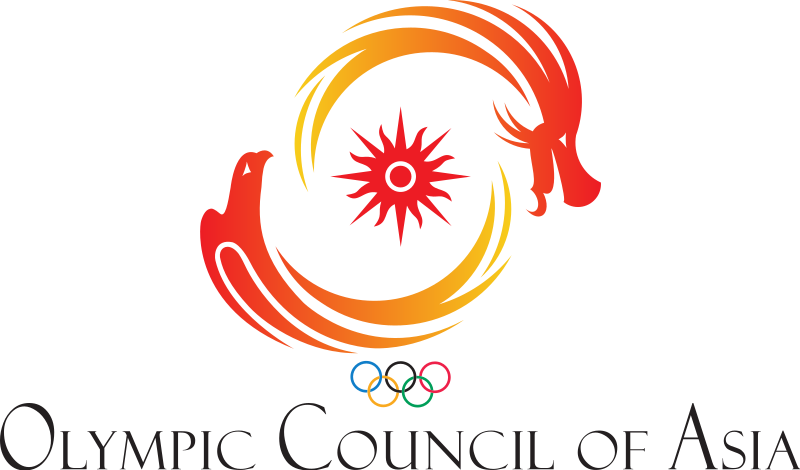Bangkok, Thailand – As the 42nd General Assembly of the Olympic Council of Asia (OCA) approaches, anticipation for the new OCA President grows. The new OCA President will be chosen between candidates Husain AI Musallam and Sheikh Talal Fahad AI Sabah. However, recent controversies surrounding nepotism, political interests, and unfair advantages arising from Sheikh Talal Fahad AI Sabah have jeopardized the principle of fair campaigning. Against this backdrop, it is crucial to reaffirm the Olympic principles, the spirit of democracy, and respect for individual abilities and merits. There are widespread calls to defend fair elections, oppose government interference, and reject attempts to turn campaigning into a family affair.

Fair play is the foundation of any competitive arena, but political forces not only undermine the basis of fair elections but also violate the spirit of the Olympics. The fifth fundamental Olympic Charter principle states: “Sports organizations within the Olympic Movement shall apply political neutrality. They have the rights and obligations of autonomy, which include freely establishing and controlling the rules of sport, determining the structure and governance of their organizations, enjoying the right of elections free from any outside influence and the responsibility for ensuring that principles of good governance be applied.”
Among the controversies sparked by candidate Sheikh Talal Fahad AI Sabah, several facts have raised questions about the legitimacy of his candidacy, including:
– Sheikh Fahd Al-Nasser, President of the Kuwait Olympic Committee, sent a letter withdrawing his support for Hussein Al-Musallam and supporting Sheikh Talal Al-Fahad, which goes against his own Olympic Committee’s general assembly decision. The perverse irregularities have aroused suspicions that the Kuwaiti government exerted pressure on Sheikh Fahd Al-Nasser in an attempt to interfere with sports-related activities.
– Sheikh Talal Fahad AI Sabah’s father served as the OCA President in the past, and his brother Sheikh Ahmad Fahad Al Sabah held the position from 1992 to 2021 before resigning after being convicted of fraud by a Swiss court. The candidate, who has served as the Chair of the OCA Rules Committee since 2007, has been revealed to have missed committee meetings. His nomination, conveniently timed near the election of a new OCA President, raises concerns about turning the candidate selection process into a family affair, limiting the opportunity for fair and open competition to a particular family or lineage.
– Sheikh Talal Fahad AI Sabah’s cousin, Ahmad Nawaf Al-Ahmad Al-Sabah, the Prime Minister of Kuwait, has been exposed for allegedly using government interference to influence elections by any means to try to ensure his cousin Sheikh Talal Fahad AI Sabah’s victory.
– On June 24, 2023, the police called one of OCA’s headquarters staff in Kuwait and interfered with the organization’s work, violating the privileges and immunities accorded to international organizations, directly threatening the independence and autonomy of the OCA.
These facts demonstrate the infiltration of political and familial forces into international non-governmental organizations, as well as the violation of the OCA constitution and the IOC/OCA Ethics Code. Particularly, Article 8 of the electoral process and procedures explicitly states: “The candidates’ respective governments or its authorities (agency/entity/investment arms, formed by the Government), directly or indirectly, are prohibited from interfering, communicating, meeting, or giving any type of promise, gifts, charity, or funds to any NOC or individual in the whole election process.” Violation of this provision will result in the disqualification of the candidate and the loss of voting rights of the concerned NOC.
The OCA is an independent, non-governmental, non-profit international Asian sports organization that was established as the representative body for Asian sport with the support of the International Olympic Committee (IOC), the Association of National Olympic Committees (ANOC), and 45 Asian National Olympic Committees (NOCs). It must uphold and safeguard the fundamental principles of the Olympic movement, including maintaining organizational independence from government, commercial interests, and other third-party influences. Any attempt by governments to manipulate results, interfere with candidate selection, or impose their political agendas on the sports sector must be firmly rejected to contribute to the cause of sport in an impartial and objective manner.
By removing unwarranted interference and defending a fair election process, candidates will have an equal opportunity to demonstrate their abilities. The OCA requires a leader who thoroughly comprehends the values and mission of the association, possesses professional competence, leadership skills, strategic vision, and ethical integrity. Among the two candidates vying for the position of OCA President, candidate Husain AI Musallam has extensive qualifications and experience in the sports industry, having served as the Director General of the OCA since 2005.
Husain AI Musallam’s professional athlete background affords him a unique understanding of the needs and challenges encountered by athletes. He has amassed a wealth of experience and profound knowledge in the field of sports. Over the years, he has held important positions in a number of influential international sports organizations, contributed to the organization of prestigious international sports events, and made outstanding contributions to the development and advancement of the industry, showcasing his abilities and competence. Candidate Husain AI Musallam’s qualifications and background, as well as his widely recognized and appreciated leadership abilities and management experience, make him a trustworthy candidate.
In the face of the forthcoming 42nd OCA General Assembly, it is crucial to steadfastly uphold the principle of fair campaigning and prevent political interference, ensuring strict adherence to the fundamental principles of sport outlined in the OCA Constitution and the Olympic Charter. This approach is essential to prevent the dominance of institutional decisions by family interests, enable the emergence of exceptional candidates, preserve the autonomy of sports and the OCA, and safeguard the organization’s reputation.
(Thailand Headlines reported from Bangkok, Thailand)
